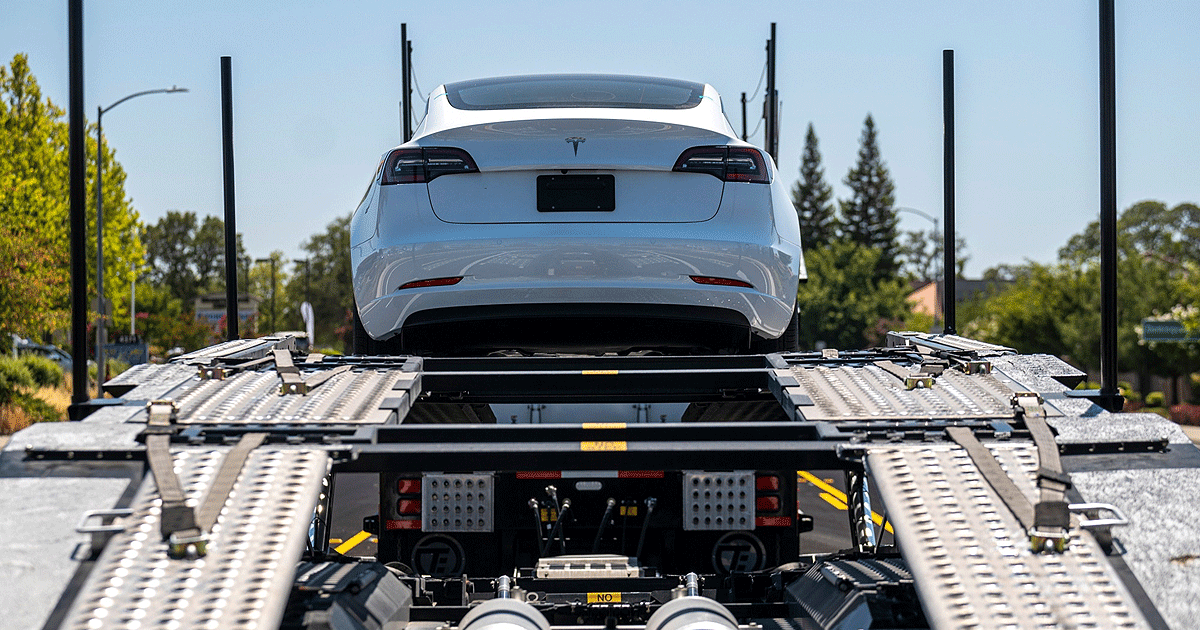
For more than a decade, Germany dominated the U.S. luxury sales Grand Prix. But it’s 2022, and American luxury is back.
Texas’ Tesla Inc. has entered the final quarter with a mile-long U.S. sales lead, leaving former premium segment champions BMW and Mercedes-Benz squabbling over second place.
While Tesla does not break out sales by market, the Automotive News Research & Data Center estimates Tesla delivered 114,000 cars and crossovers in the third quarter, rocketing 47 percent higher from a year earlier.
So far this year, the EV maker has a 112,050-vehicle sales lead over No. 2 BMW.
Overall, premium-brand sales tallied 539,807 cars and light trucks in the third quarter, up 7.1 percent while the broader industry’s deliveries flatlined.
The lift in quarterly sales comes as luxury vehicle supply improves.
As of Sept. 26, the average dealer days’ supply for luxury brands in the U.S. was 47, slightly higher than the 44 days’ supply a month earlier, according to a Cox Automotive analysis.
After trailing rival BMW in quarterly sales for more than a year, Mercedes-Benz rallied in the second quarter. But BMW grabbed the lead back in the latest quarter.
BMW deliveries inched 3.2 percent higher to 78,031. Meanwhile, Mercedes sold 72,389 vehicles — up 31 percent — in the July-to-September period.
For the year, BMW remains ahead with a 16,905-vehicle lead over Mercedes. The Mercedes figures exclude commercial trucks and vans, which Automotive News does not consider luxury vehicles.
As of late September, BMW had a 31-day supply of vehicles compared with Mercedes’ 44-day supply, Cox’s analysis showed.
After seeing Tesla dominate with its EVs, the Germans vow to strike back with their next-generation battery vehicles.
In the U.S., Mercedes will have four EVs on the market before year-end. In 2023, the lineup will expand with the arrival of the EQE midsize crossover.
This year, BMW sees a lift in sales from strong demand — and supply — for its zero-emission i4 sedan and iX crossover. The automaker said it sold 6,900 EVs in the U.S. this year, including more than 4,300 in the third quarter.
Increased allocation of crossovers from BMW’s Spartanburg, S.C., factory also meant dealers had product to meet strong demand. Light trucks accounted for more than two-thirds of the brand’s quarterly sales.
“We utilized our home field advantage,” BMW of North America sales boss Shaun Bugbee told Automotive News.
BMW dealers turned about 75 percent of available inventory and ended the quarter with a 10-day supply.
For the fourth quarter, Bugbee forecast “close to double-digit” year-over-year growth as new products, such as the redesigned 7 Series sedan and X1 crossover, arrive.
“Our inventory position will improve for Q4,” he said.
Among other luxury brands, Volvo’s third-quarter sales slipped 32 percent to 21,631 despite having an 88-day supply, the highest in the industry, according to Cox.
But Volvo disagreed with Cox’s day-supply analysis.
“Our days supply data, which is backed by Motor Intelligence, indicates less than half of that,” Volvo Car USA CEO Anders Gustafsson said in an email. “We continue at historically low inventory levels. Demand remains strong.”
Lexus delivered 67,524 vehicles, down 17 percent from a year earlier. The Japanese brand’s 27-day supply was the tightest in the premium segment.
Audi reported deliveries of 49,267 in the quarter, up 20 percent from a year earlier.
Porsche reported quarterly U.S. sales of 16,581 vehicles, up 8.5 percent from last year.
Genesis deliveries inched 1.3 percent higher to 15,212. Hyundai Group’s luxury brand has posted year-over-year sales growth in 22 consecutive months, with year-to-date deliveries up 19 percent.